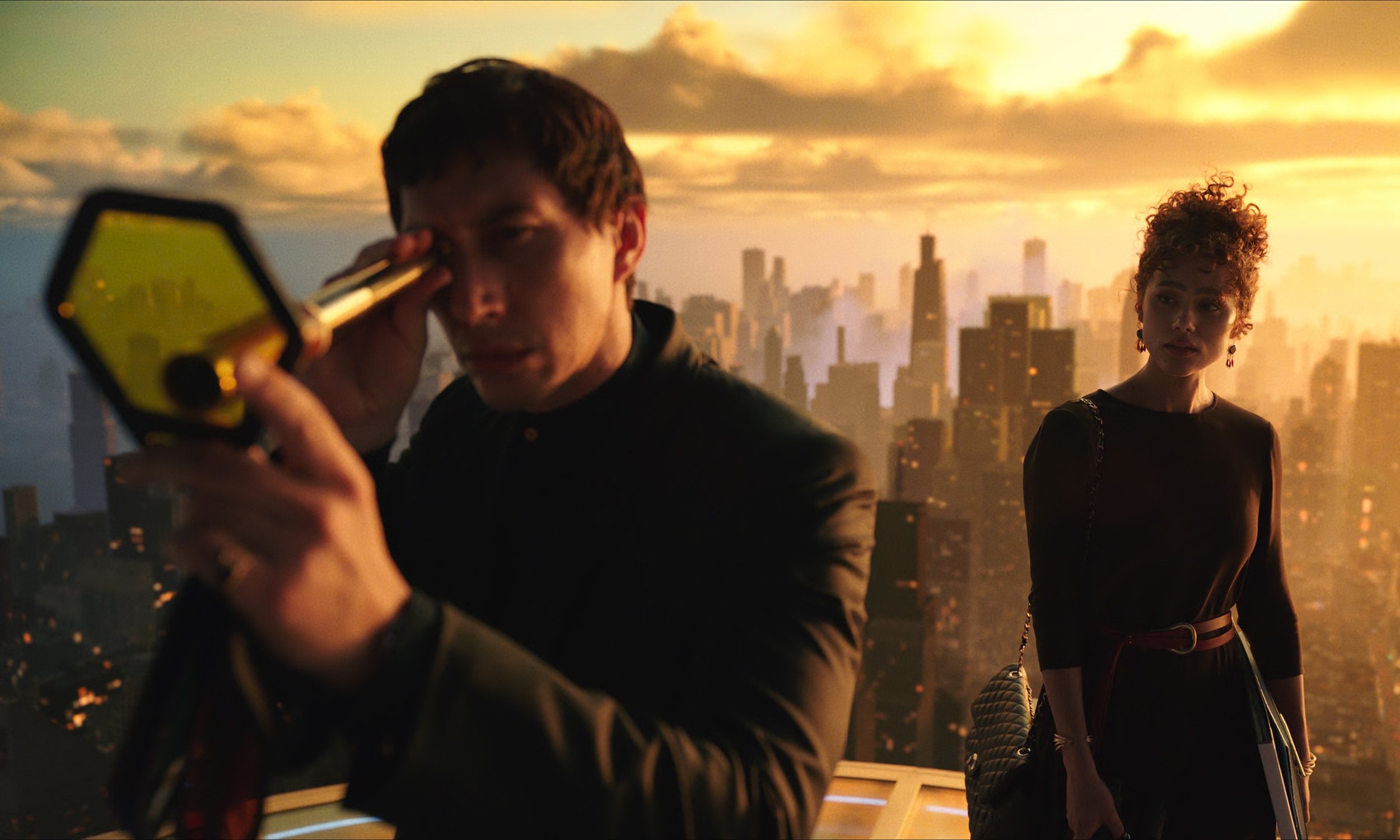MEGALOPOLIS
**
Directed by Francis Ford Coppola.
Starring Adam Driver, Nathalie Emmanuel, Shia LeBouef, Aubrey Plaza.
Science-Fiction, US, 138 minutes, Certificate 18.
Released in cinemas in the UK on September 27th by Lionsgate
Over the years there have been a number of tantalising unmade projects that have passed into cinema legend. Whether it’s Paul Verhoeven’s historical epic CRUSADE, which would have seen Arnold Schwarrzenneger cutting a bloody swath through mediaeval Europe in the name of God or Ridley Scott’s adaptation of I AM LEGEND which would have also seen Arnold Schwarzenegger cutting a bloody swath through a Los Angeles populated by vampires. For a long time this list of greatest movies never made would have been incomplete without a mention of MEGALOPOLIS,a passion project of Francis Ford Coppola which was rumoured to have been a mix of sci-fi, Roman epic and architecture. Here we are then, now in the future and after many false starts and a considerable chunk of his own fortune sunk into financing, MEGALOPOLIS finally makes it through the projector.
Sadly a film like this would have been better off left in our imaginations where we could have wondered endlessly what an ambitious, heady METROPOLIS-like epic could have been from the man who gave us APOCALYPSE NOW. Instead we are subjected to a muddled digital dirge reminiscent of the worst parts of ATTACK OF THE CLONES from the director of JACK.
Light on plot, this is the tale of New Rome, a bustling decadent metropolis that is basically New York with a slight Roman cosplay fetish. Seemingly a decadent society on the verge of collapse, we eventually learn that the city’s Mayor Cicero is at loggerheads with Cesar Catilina, superstar architect with big plans for the city involving a newly discovered substance called “megalo” which can replace concrete and steel. Cesar is also suspected of murdering his previous wife and has the ability to stop time. With disaster seemingly on the horizon, Cesar soon finds himself distracted from his life’s work by Julia, Mayor Cicero’s daughter, while also contending with the scheming machinations of his cousin Clodio and bitter ex-girlfriend/financial reporter Wow Platinum.
If this sounds like it’s all over the place then that’s because it is. Coppola has thrown everything at the screen, within his budget at least, to see what sticks. What we end up with is a threadbare epic that forgets what it is about most of the time and lurches through a series of mish-mashed tones that confound rather than dazzle. One minute we’re watching a lethargic Adam Driver trade 30’s style screwball dialogue with romantic interest Nathalie Emmanuel, only to be whiplashed into scenes of courtroom intrigue played out against the backdrop of colossal spectacle that somehow ends up as a half baked metaphor for the January 6th riots of 2021. All while we suffer through an absolutely terrible Shia LeBouef performance that aims to combine Trumpian scheming with unconvincing vamping.
Coppola’s ambition cannot be faulted but this feels like such a missed opportunity. His attempts to combine mythic storytelling with current political subtext comes across as his most muddled work in his varied filmography. Clumsy metaphors abound throughout, only to be followed up with illustrations of the metaphor themselves in case you were not paying attention and the talented cast struggle to make sense of what they have been given to work with.
Aubrey Plaza, as Wow Platinum, pretty much walks away with the film whenever she slinks on screen. Somehow she has managed to tap into whatever tone is being used at the time. Coppola himself also seems to tap into the vibe, particularly when she exercises some spectacular overacting when launching her treacherous scheming into action against her aged husband Hamilton Crassus III, played by an unintentionally amusing Jon Voight.
Partway through the film there is a scene where Driver and Emmanuel stride carefree thousands of feet above the city from suspended girder to girder. What should be a thrilling, romantic swoon of a scene plays out flatly with no sense of thrill or scale. Instead we are treated to a flat digital greenscreen shot we can now take for granted. Even the much promised Utopian vision of its protagonist comes across as sub-par and poorly executed, leaving you wondering where the $100,000,000 budget has disappeared to. Gone is the Francis Ford Coppola of the last century who brought such visual invention to his adaptation of Dracula. Now we are treated to a folly which is entertaining for all the wrong reasons. On one hand it seems that he has made the film he wanted to make without anyone standing in his way. On the other hand however it seems that so few of us are that interested in this expensive folly of a film that plays out to its own strained metaphor of decline and collapse.
Iain MacLeod

